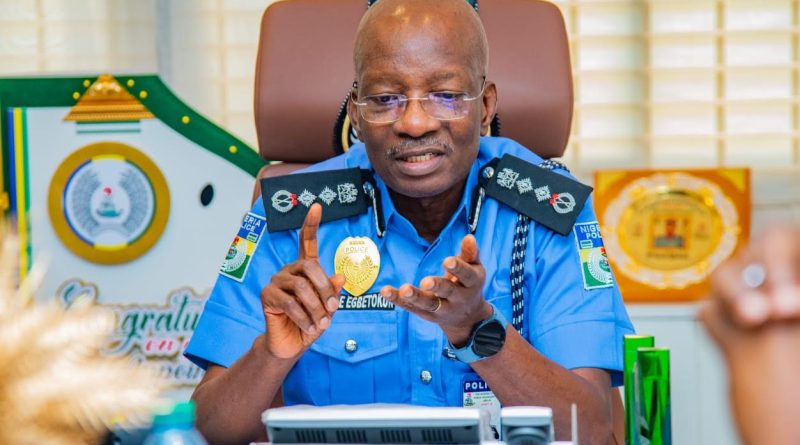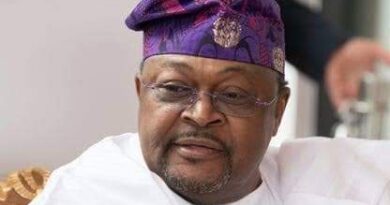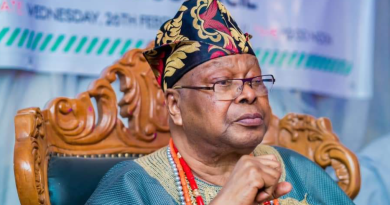Insulating Nigeria Police From Political Interference: A Case Study Of The Rivers State Local Government Elections,By Olufemi Lawson
In recent weeks, the Nigeria Police Force (NPF) has been thrust into a contentious political arena, highlighted by the recent local government elections in Rivers State.
The political maneuvering surrounding the election has revealed an urgent need for insulating law enforcement institutions, particularly the NPF, from undue political interference. The growing trend of politicians leveraging the police for their own partisan interests, especially through blackmail, threatens the integrity of the force and the rule of law in Nigeria.The controversy surrounding the Rivers State elections serves as a poignant example.
Following the controversies surrounding the elections, various political factions, notably those aligned with Governor Sim Fubara, have resorted to exploiting judicial decisions to coerce the NPF into siding with their agendas. Such actions not only undermine the independence of the police but also jeopardize public confidence in law enforcement. It is troubling to witness how political actors manipulate the judiciary and the police to serve their interests, a situation that calls for a decisive response to protect the integrity of these institutions.
Inspector General of Police (IGP) Kayode Egbetokun has emerged as a central figure in this turmoil. His steadfast refusal to bow to the pressures from political elites seeking to exploit the NPF for their gain has drawn both admiration and scorn. The backlash against him, a series of orchestrated smear campaigns, reflects a broader strategy employed by politicians to intimidate the police into compliance. Egbetokun’s commitment to uphold the rule of law, even in the face of these attacks, is commendable and highlights the critical need for an independent police force that can operate free from political manipulation.
Kayode Egbetokun’s career is a pointer to his dedication and capability. Joining the Nigeria Police Force as a young officer, he has steadily ascended through the ranks, earning a reputation as one of the most accomplished police officers of his generation. His tenure has been marked by numerous successful operations, reforms, and initiatives aimed at improving policing standards and public safety across Nigeria. Egbetokun has demonstrated a clear understanding of the complexities of law enforcement in a politically charged environment.His accolades are numerous and span both national and international arenas.
Egbetokun has been recognized for his leadership and commitment to community policing, anti-corruption initiatives, and operational effectiveness. These honors are not just decorations but reflect his genuine impact on improving the perception and efficacy of the police force.
This track record has earned him significant respect among both the public and his colleagues within the NPF, ensur an unprecedented level of trust in his leadership.The political climate in Nigeria, particularly during election periods, has historically been fraught with tensions that often lead to the police being used as pawns in political games.
The current situation in Rivers State epitomizes this trend, as politicians seek to wield judicial rulings as weapons against law enforcement. Such tactics not only threaten the impartiality of the police but also erode public confidence in their ability to enforce the law fairly. The need for a robust institutional framework to protect the police from these political pressures has never been more urgent.
Egbetokun’s leadership stands in stark contrast to the historical precedent where police forces have been co-opted by political interests. His ability to resist these pressures while maintaining morale among officers demonstrates a crucial shift in how the NPF can operate. The endorsement and support he has garnered from rank-and-file officers reflect hope for a police force that is accountable to the people rather than to political elites.
Moreover, the need for institutional insulation extends beyond the current political climate. A police force that operates independently is essential for upholding democracy and safeguarding citizens’ rights. Political interference in law enforcement not only distorts justice but also risks fostering a culture of impunity, where the rule of law is subverted for political gain. This undermines public safety and erodes trust in democratic institutions.
In light of these considerations, it is imperative for Nigerian lawmakers and political leaders to prioritize the reform of the NPF to protect it from undue influence. Establishing mechanisms that ensure accountability and independence for the police will not only bolster public confidence but also strengthen the rule of law. The situation in Rivers State should serve as a wake-up call, prompting serious discussions on the structural changes necessary to insulate law enforcement from the vagaries of political power.
Finally, the events surrounding the recent local government elections in Rivers State highlight a critical juncture for the Nigeria Police Force. Under IGP Kayode Egbetokun’s leadership, there is an opportunity to establish a model for an independent police force that can withstand political pressures. By fostering a police institution that prioritizes the rule of law over political expediency, Nigeria can move toward a more just and equitable society, where law enforcement is truly an embodiment of public service.
God bless Nigeria.




